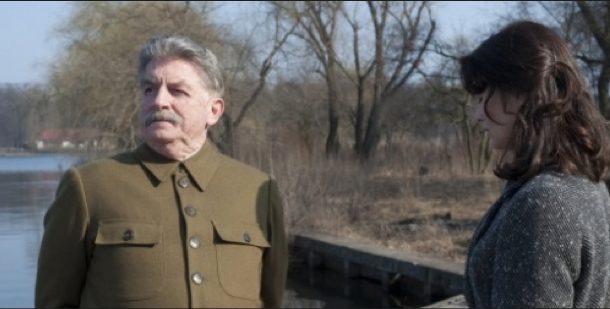Showing @ Filmhouse 17-23 December
Marc Dugain/ France/ 2010/ 105 min
Set in 1950s Russia a time of purges and rumours of purges Anna (Marina Hands) a young married doctor is planning a life and family with her physicist husband whilst dealing with the day to day pressure and scarcities of the soviet state. Despite the seeming normality of her life Anna has a secret, a gift of healing that goes beyond modern medicine and it’s this ability that brings her to the attention of uncle Joe Stalin (André Dussollier) himself.
Appropriately for a film where the Russians speak French Stalin’s character can be summed up by the phrase L’Etat c’est moi. Dussollier’s dictator is a paranoid, self justifying monster with each order for torture or disappearance stated as a necessity for the protection of the communist ideal, filled with icy solipsism he provides the dark heart to the piece. The scenes with Stalin relating his latest casual outrage to Anna as she soothes his pain are where the film really comes to life with her moral compromise reflecting the realities of the world outside.
Director Marc Dugain also wrote the novel upon which the film is based and it’s clear this isn’t a filmaker’s film. The cast are excellent and the cinematography and sets create the achromatic, repressed atmosphere of Stalin’s Russia, yet the An Ordinary Execution doesn’t fulfill. Dugain never makes up his mind whether to tell the story in images or words and it feels unbalanced and slow, also the mix between the bold performances by veterans of the Parisian Theatre of Comedy and Hands’ Bressonesque lack of expression seem ill matched.
Worth seeing for Dussollier’s portrayal this film should have been a parable on the dangers of being extraordinary at this time and place in history but doesn’t quite manage to achieve both. Ultimately An Ordinary Execution is an interesting concept but less than the sum of it’s parts.


Comments